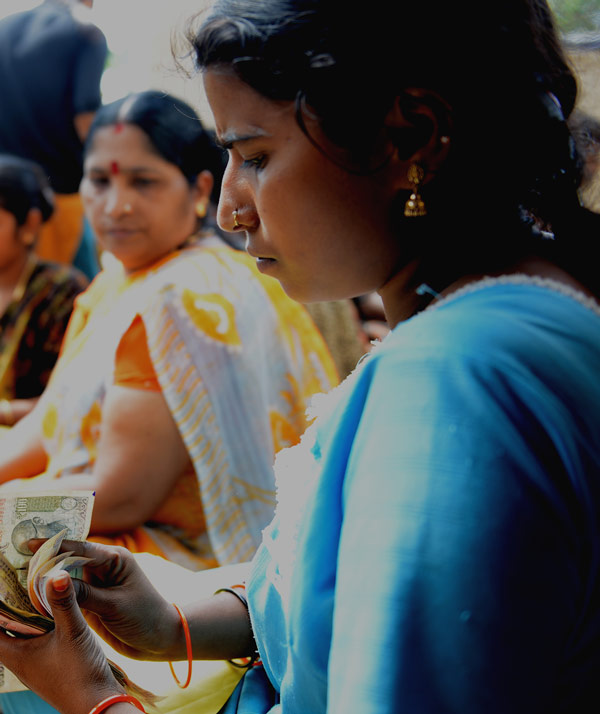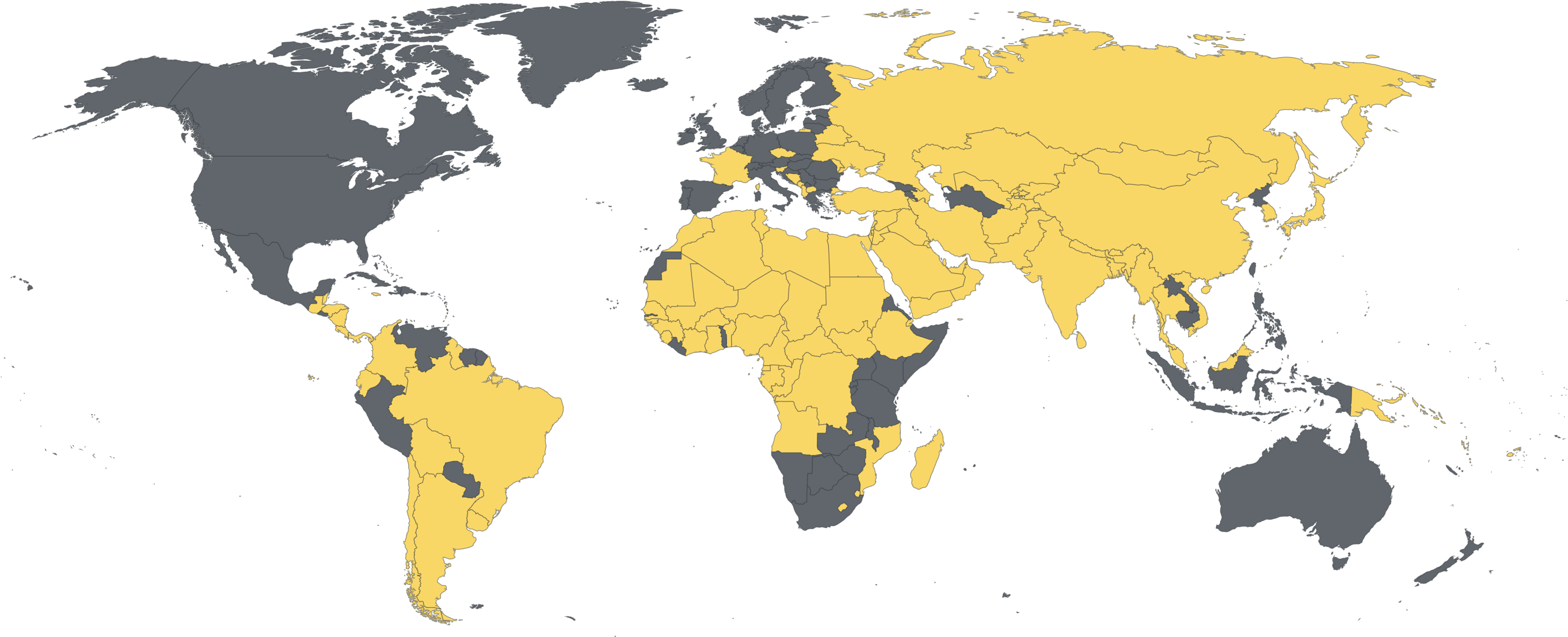19 countries legally require married women to obey their husbands.
37 countries restrict women from applying for a passport in the same way as men.
11 countries prohibit women from obtaining a national identification card in the same way as men.
6 countries restrict women from traveling abroad in the same way as men.
17 countries prevent women from traveling outside the home in the same way as men.
18 countries prohibit women from getting a job or pursuing a trade or profession in the same way as men.
1 country bars women from signing a contract in the same way as men.
4 countries restrict women from registering a business in the same way as men.
3 countries prevent women from opening a bank account in the same way as men.
31 countries restrict women from choosing where to live in the same way as men.
31 countries bar women from being head of the household or head of the family in the same way as men.
24 countries restrict women from conferring citizenship on children in the same way as men.
9 countries dictate that only husbands—not wives—can legally administer marital property.
55 countries do not account for the valuation of nonmonetary contributions to the household.
13 countries restrict women and men from having equal property-ownership rights.
39 countries prevent daughters from having the same rights as sons to inherit assets from their parents.
36 countries do not grant female surviving spouses equal rights to inherit assets as males have.
16 countries do not consider women’s testimony to carry the same evidentiary weight in court as men’s.
69 countries do not mandate legal aid in civil and family matters.
96 countries have not established an antidiscrimination commission.
75 countries do not guarantee mothers an equivalent position after taking maternity leave.
In 54 countries, the government does not provide childcare services.
In 15 countries, specific tax deductions and tax credits are applicable only to men.
In 156 countries, payments for childcare are not tax-deductible.
In 18 countries, primary education is not free and compulsory.
118 countries do not mandate employers to provide leave for employees to care for sick relatives.
117 countries do not prohibit discrimination by creditors on the basis of sex or gender.
153 countries do not prohibit discrimination by creditors on the basis of marital status.
12 countries do not have legally mandated paid maternity leave.
In 86 countries, the government does not pay the full cost of maternity leave benefits.
In 86 countries, differences in legally mandated paid leave for men and women create a burden on employers.
147 countries do not have legally mandated paid parental leave.
98 countries do not have legally mandated paid paternity leave.
113 countries do not mandate equal remuneration for work of equal value.
41 countries do not mandate nondiscrimination in employment based on gender.
37 countries do not prohibit the dismissal of pregnant workers.
155 countries prevent parents from working flexibly.
In 29 countries, women cannot work the same night hours as men.
In 56 countries, women cannot work in jobs deemed hazardous, arduous, or morally inappropriate in the same way as men.
In 70 countries, women are not allowed to work in the same industries as men.
In 66 countries, women are not allowed to perform the same tasks at work as men.
In 41 countries, the ages at which men and women can retire with full pension benefits are not equal.
In 13 countries, the ages at which men and women can retire with partial pension benefits are not equal.
In 10 countries, the mandatory retirement age for men and women is not equal.
In 45 countries, domestic violence is not legally prohibited.
In 59 countries, there is no law prohibiting sexual harassment in the workplace.
In 123 countries, there is no law prohibiting sexual harassment in schools.
In 110 countries, there are no criminal penalties for sexual harassment in the workplace.
In 100 countries, there are no civil remedies for sexual harassment in the workplace.
In 111 countries, there is no law explicitly criminalizing marital rape.
In 72 countries, there are no clear criminal penalties for domestic violence.
In 4 countries, the legal age of marriage for girls is below eighteen.
58 countries lack a small-claims court or fast-track procedure for small claims, which small businesses (often owned by women) use to speed up and reduce the cost of court proceedings.
132 countries do not mandate retailers to provide information to private credit bureaus or public credit registries, impeding women from building their credit histories to access finance.
129 countries do not mandate utility companies to provide information to private credit bureaus or public credit registries, impeding women from building their credit histories to access finance.
In 23 countries, women receive less than two-thirds of their wages for the first fourteen weeks of their leave, or for the duration of the leave if it is shorter.








